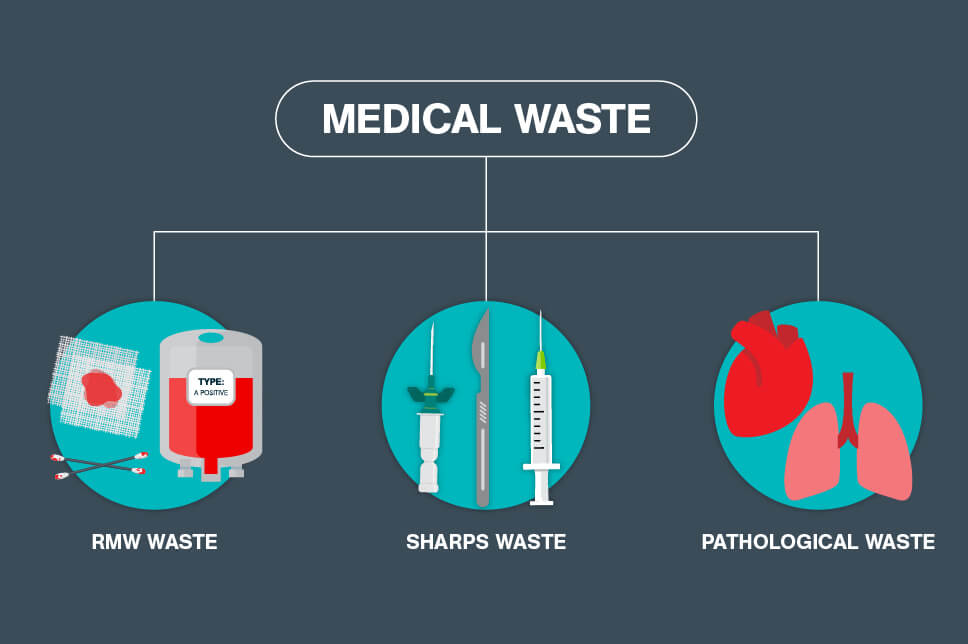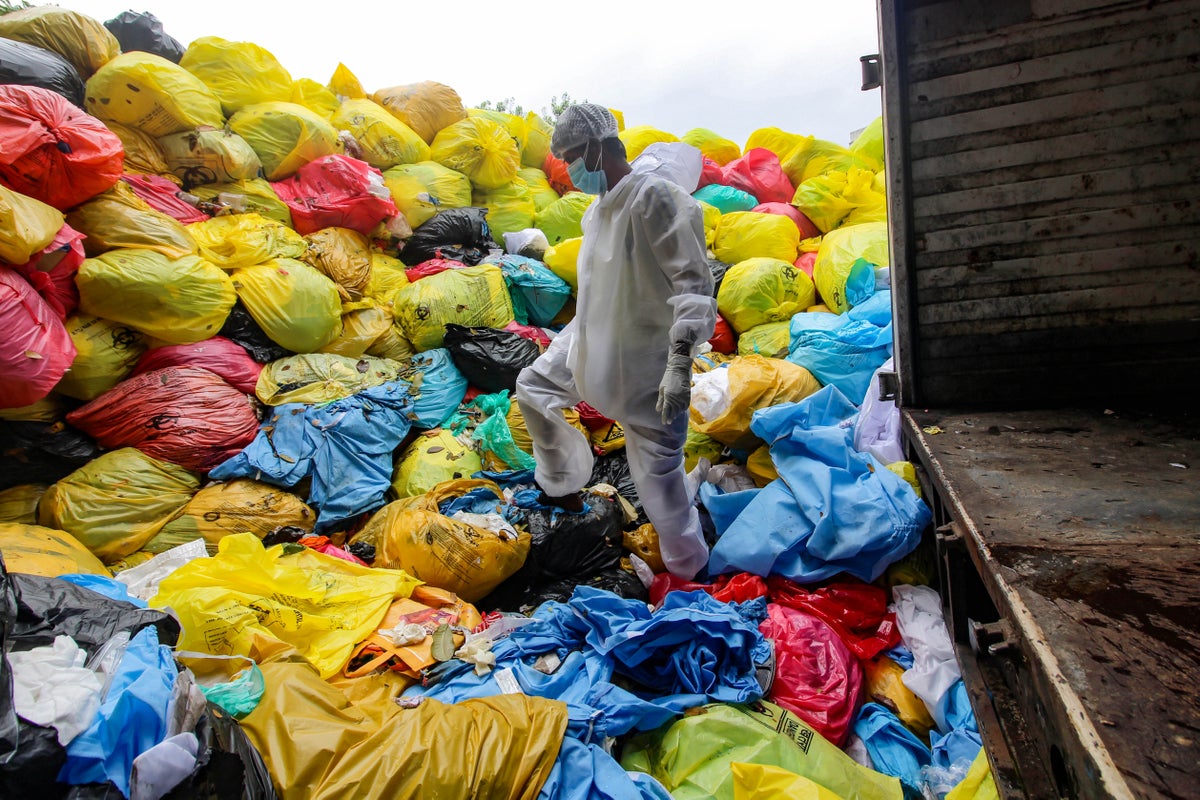Ensuring Safe Handling and Disposal of Medical Waste
Ensuring safe handling and disposal of clinical waste is of extremely important significance in healthcare settings. Improper monitoring of medical waste can present substantial threats to the atmosphere, public health, and medical care workers. This requires adherence to rigorous guidelines and procedures for its safe handling and disposal. In this intro, we will certainly explore the importance of proper medical waste monitoring, the risks connected with improper handling and disposal, along with the standards and strategies that can be carried out to ensure its risk-free disposal. In addition, we will talk about the relevance of training and education and learning for medical care experts in order to preserve a tidy and risk-free health care atmosphere. By following these practices, we can efficiently reduce the possible hazards linked with clinical waste.
Importance of Correct Clinical Waste Management
Proper clinical waste management is of utmost relevance in making certain the security and wellness of medical care specialists, patients, and the public. Medical waste refers to any kind of waste created by health care centers during the medical diagnosis, therapy, or immunization of animals or humans. This waste can position significant health dangers otherwise managed and dealt with effectively.
One of the main reasons that proper medical waste administration is vital is to stop the spread of contagious diseases. Medical waste, such as used needles, infected dressings, and organic products, can carry unsafe microorganisms. If not managed and taken care of correctly, these pathogens can be transferred to healthcare employees, people, waste trainers, and also the public, bring about the prospective break out of illness.
Additionally, proper clinical waste management assists shield the atmosphere - medical waste disposal service. Clinical waste includes harmful products, including chemicals, drugs, and radioactive materials. When not taken care of suitably, these compounds can contaminate dirt, water bodies, and the air, presenting a substantial danger to ecological communities and public health
Furthermore, reliable clinical waste management makes sure compliance with worldwide standards and local guidelines. Federal governments and governing bodies have established standards and protocols to ensure the secure handling, storage space, transport, and disposal of clinical waste. Sticking to these laws is necessary to avoid lawful effects and maintain the online reputation and reliability of medical care centers.
Threats of Improper Handling and Disposal

Patients can also be revealed to these transmittable conditions if clinical waste is not correctly disposed of. As an example, if infected needles or various other sharps are not thrown away in assigned puncture-proof containers, they may inadvertently puncture individuals, leading to possible infections. If medical waste is not set apart properly, there is a threat of cross-contamination between different types of waste, more boosting the chances of illness transmission.
Improper disposal of clinical waste can likewise have detrimental effects on the environment and the public. If medical waste is not treated and dealt with correctly, it can contaminate water resources, dirt, and air, leading to the spread of conditions and pollutants. This can have long-lasting effects on environments and public health.
Standards for Safe Handling of Medical Waste
Executing effective methods for the safe handling of clinical waste is vital in making certain the defense of medical care specialists, clients, and the general public. These standards are crucial in decreasing the threats related to the handling and disposal of medical waste, such as infections, injuries, and ecological air pollution.
Primarily, medical care centers should develop a detailed waste monitoring plan that abides by regional, national, and worldwide policies. This plan ought to include clear guidelines on waste segregation, packaging, labeling, transport, and storage. It is important to separate different sorts of waste, such as sharps, infectious materials, drugs, and non-hazardous waste, to protect against cross-contamination and advertise risk-free disposal.
Furthermore, medical care workers need to get complete training on appropriate waste handling methods. They must be educated on the potential threats of clinical waste, the suitable use of individual safety devices (PPE), and the right procedures for taking care of, delivering, and taking care of different kinds of waste.
In addition, medical care centers ought to frequently monitor and investigate their waste monitoring techniques to make sure conformity with standards. This includes conducting normal assessments, reviewing waste handling treatments, and providing feedback and training to personnel.
Effective Strategies for Garbage Disposal
To ensure the safe handling and disposal of clinical waste, it is crucial to use effective techniques for garbage disposal. Medical waste can pose substantial threats to public wellness and the atmosphere otherwise managed and gotten rid of effectively. Medical care facilities and waste administration organizations need to execute appropriate strategies to mitigate these risks.
It entails separating different kinds of medical waste based on their attributes. Health care centers need to give clear standards and training to staff participants on just how to set apart waste properly.

Furthermore, health care facilities should team up with qualified waste monitoring business to ensure proper disposal of medical waste. These firms have the know-how and devices needed to safely get rid of and take care of of medical waste in compliance with laws and finest techniques.
Training and Education And Learning for Health Care Professionals
Health care professionals play a critical role in guaranteeing the secure handling and disposal of clinical waste through comprehensive training and education. It is essential for medical care providers to have a deep understanding of the prospective dangers connected with medical waste and the proper procedures for its management. By receiving appropriate training, medical care specialists can lessen the possible transmission of contagious illness, prevent ecological contamination, and secure both themselves and the basic public.

Furthermore, training programs need to emphasize making use of individual safety devices click here for info (PPE) and proper hand health techniques when managing medical waste. medical waste removal. Healthcare specialists should know just how to correctly utilize and dispose of PPE to safeguard themselves from prospective exposure to unsafe products. They should likewise be educated on the value of routine handwashing and the correct use of hand sanitizers to reduce the spread of transmittable diseases
Continuing education and learning and normal updates on clinical waste monitoring methods are critical for healthcare professionals. As guidelines and laws evolve, it is vital to maintain medical care providers informed concerning any kind of changes in procedures and best methods. This will ensure that they remain up-to-date and maintain a high requirement of safety and security in getting rid of and dealing with of clinical waste.
Conclusion
In final thought, appropriate handling and disposal of medical waste is vital to make certain the safety of healthcare professionals, people, and the atmosphere. By adhering to these practices, we can alleviate the prospective dangers connected with medical waste.
Medical waste refers to any type of waste generated by medical care facilities during the diagnosis, therapy, or immunization of animals or people. If medical waste is not set apart effectively, there is a threat of cross-contamination in between different types of waste, additional increasing the possibilities of condition transmission.
It is crucial to divide different types of waste, such as sharps, contagious products, pharmaceuticals, and non-hazardous waste, to protect against cross-contamination and promote safe disposal. WasteX Medical Waste Disposal.
To guarantee the secure handling and disposal of clinical waste, it is essential to utilize reliable approaches for waste disposal. In addition, medical care centers ought to establish a routine waste collection and transport timetable to avoid waste buildup and lessen the risk of accidents or contamination.